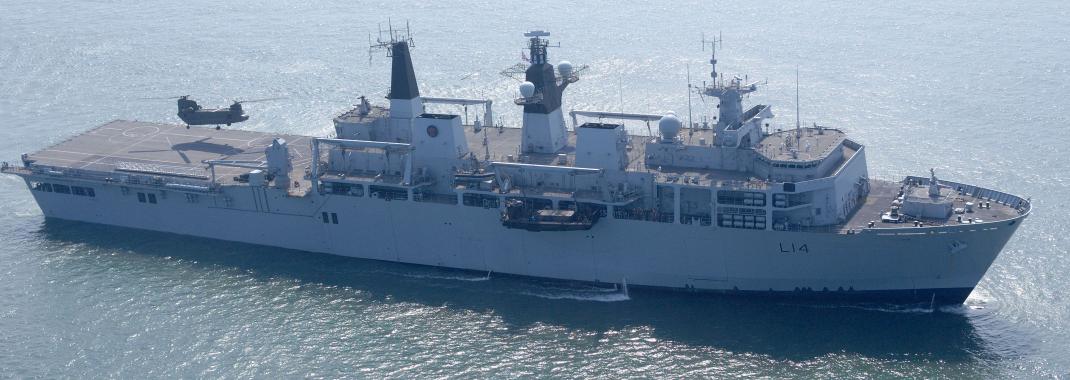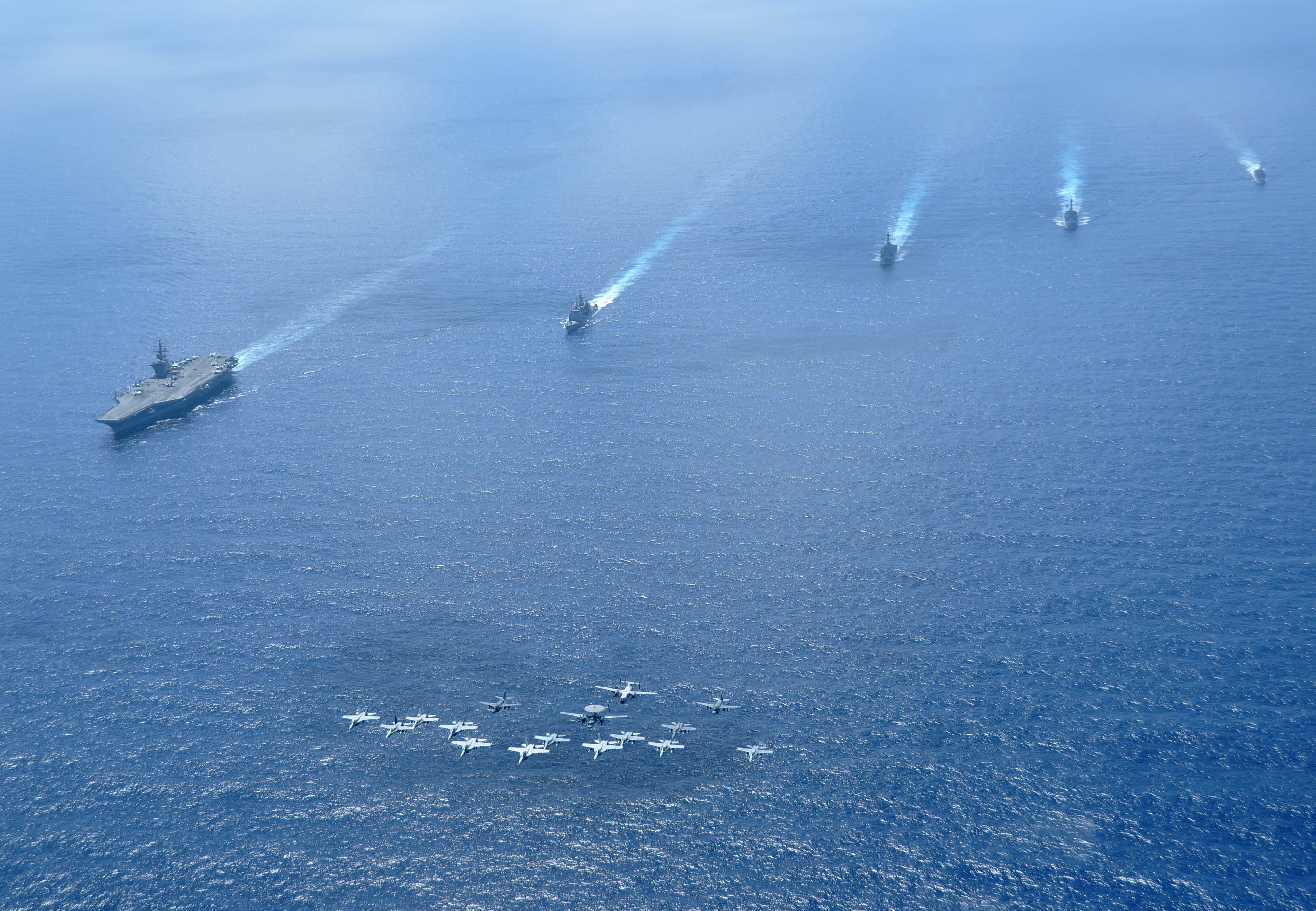China and Russia: Closing the Maritime System?
Council on Geostrategy, Long Read, 10 March, 2021
The news that the upcoming Integrated Review will focus on emerging technologies and non-traditional domains is to be welcomed, particularly those relating to cyberspace, space, and artificial intelligence (AI). In addition to increasing the United Kingdom’s (UK) conventional deterrence capabilities, this also gives its forces the ability to push back and fight in the information domain, a space where Russia and China are increasing the tempo of their ‘grey zone’ operations and influence campaigns. However, as the democracies increase their capacities in these new sectors, the basic truths of the current global order should not be forgotten. At its heart, the rules-based order is more of an onion with overlapping architectures, with a core, based on the maritime domain. And it is within that system that China and Russia are seeking to rewrite the rules.
The maritime domain covers two-thirds of the earth’s surface. As a result, more than 90% of global trade takes place by sea, with 200 countries having ports capable of handling container shipping. In 2019, the total value of annual world shipping trade was estimated to be US$14 trillion, comparable to China’s economic output for that year. Despite a contraction in the shipping industry caused by the United States (US)-China trade war and the Covid-19 pandemic, the global market for cargo shipping remains robust and is expected to rebound in 2021. The importance of the maritime domain to the survival of nations has long been recognized, as sea access allows for states to become stronger through trade, while sea power allows for states to contest or deny trade to other states.
The development of the current ‘free sea’ – or mare liberum – system was not an inevitable outcome of historic trends. While it is true that various empires have struggled to assert control over the sea as they have over land, it is not for a lack of trying. A number of countries have tried to lay claim to navigational, fishing, and trade rights in what are now known as international waters. During the fifteenth century, Castile (Spain) and Portugal attempted to enforce a ‘closed sea’ – or mare clausem – system across the globe with the 1454 Treaty of Tordesillas dividing the maritime domain into a Portuguese Hemisphere (covering the South Atlantic, Indian Ocean, right up to the southern shore of Japan) and a Spanish Hemisphere (covering the mid-Pacific to the coastlines of the New World). While the agreement was initially bilateral, they attempted to give the treaty universal authority by lobbying the Vatican to add its weight to the agreement. In 1455, Pope Nicholas V duly issued the Romanus Pontifex Bull which legitimised mare clausem. While it is questionable to what extent the two countries’ claims were widely accepted in Europe – France refused to accept them as binding, for example – Spain and Portugal believed these waters, their islands, and contiguous territories were the property of the crown. Hugo Grotius’ seminal textThe Free Sea in 1609 was as much about negating this order as it was proposing the foundations of a new one.
When considering Russian actions in the Northern Sea Route (NSR) and Chinese actions in the Southern Sea Route (SSR) between Asia and Europe, it is vital to consider whether these constitute an incremental attack on the underlying principles of mare liberum and an attempt to assert rules and norms more in keeping with mare clausem. What are the grounds for believing that they are doing so?
Extended jurisdiction: At the heart of Russia and China’s actions in the Arctic and the South China Sea are their attempts to extend special rights over waterways that are quite expanded from those afforded by the United Nations Convention on the Law of the Sea (UNCLOS). According to Section 3, Article 17 of UNCLOS, ‘ships of all states, whether coastal or land-locked, enjoy the right of innocent passage through the territorial sea.’ In asserting the right to ask ‘advanced permission’ of foreign naval vessels that seek to carry out ‘innocent passage’ through its territorial waters, China is infringing on the rights of other seafaring states. This is compounded by its drawing of straight baselines around islands, islets, and claiming territorial waters for submerged features that do not deserve them. Similarly, Russia has begun to assert a conditionality upon the rights of other nations to ‘innocent passage’ along the NSR (beyond those stated in UNCLOS) and it has announced a requirement for vessels to give 45 days’ notice and request permission from the Russian government for foreign vessels to transit. The Russian Izvestia newspaper stated at the time that ‘Russia is taking the Northern Sea Route under protection.’
Location, location, location: While many countries have had protectionist maritime policies within their own territorial waters, few impact global trade in the way that Russian and Chinese claims do. Both are carrying out their activities in seas that also straddle the most direct routes between the manufacturing heartlands of Asia and the advanced economies of Europe. For China, the SSR straddles access to Middle East oil and burgeoning African markets. Around 30% of global maritime crude oil trade – around 15 million barrels per day – transits the South China Sea. While the NSR is not yet functioning as a year-round trade route, it saw 27 million tonnes of cargo volume in 2020 and is set to continue rising. In 2016, the World Economic Forum’s Global Advisory Council on the Arctic predicted that 30% of Asia-Europe container trade would transit the NSR by 2030 since it is 35% faster than the southern sea route. The area is also thought to be home to abundant fishing prospects and untapped carbon reserves.
Military coercion: China and Russia have sought to codify their expansionist maritime claims in national laws and used the presence of localised military forces to enforce their claims. China’s ‘island fortresses’ in the South China Sea have been extensively covered by the international media through think tanks like the Centre for Strategic and International Studies’ Asia Maritime Transparency Initiative (AMTI), which uses commercially available satellite imaging in analysis. According to AMTI, China has bolstered these islands with airfields, hangars for combat aircraft, radar and sensor arrays, and mobile surface-to-air and anti-ship missile systems. In the NSR, Russia has spent considerable resources building up its air and maritime early warning systems and reopened fifty previously closed Soviet-era military bases in the Arctic – including thirteen airbases, ten radar stations, and twenty border outposts. It established the Arctic Strategic Command in 2014, strengthened the Northern Fleet, and updated its naval strategy in 2017 to include a large Arctic component. It has also developed and tested new Arctic-based cruise missiles and nuclear-powered undersea drones. In sum, it would appear that both China and Russia have – with little fanfare or resistance – sought to assert political and military control over fulcrum points of maritime sea trade.
In some ways, the rise of China is more of a concern because of its economic heft and ability to use this to coerce surrounding nations. While the ambition of Xi Jinping, General Secretary of the Chinese Communist Party, to turn his nation into a ‘maritime great power’ can be viewed as a natural and inevitable result of China’s rise as a global manufacturing hub and top exporting nation, there are worrying signs that Beijing will reshape the basic rules of the global order to suit its preferences. Doing so will help China realise its global ambition to ‘move closer to centre stage’. The growth of China’s port ownership around key trade routes and maritime chokepoints enhances its influence over the maritime order, while its growing naval clout also means it may have the power to enforce these new rules. In September 2020, the US released a report acknowledging that China’s fleet had surpassed that of the US in numbers (350 to 293).
Taken together, these shifts in maritime order – legal, political, and military – portend a maritime domain with new rules and norms suited to the preferences of Beijing and Moscow. This is to the detriment of countries that rely on the SSR and NSR for future economic growth and prosperity. While Britain’s position as either a Euro-Atlantic power or an Indo-Pacific power might be debated, it is clear that it must be a maritime power, working with other like-minded seafaring democracies to maintain a free and open sea in both sea routes. It should either work with – or join – the Quad to ensure continued access through the SSR for all. It should also work with the North Atlantic Treaty Organisation (NATO) to shift more attention and resources north, and develop a common ‘Three Eyes’ – Canada, US, and UK – approach to respond to Russian activity in the Arctic and North Atlantic.
Noting China’s ‘continentalist’ approach towards the maritime domain, Andrew Lambert, Laughton Professor of Seapower at King’s College, London, has written that if China replaced the US as the world’s leading power, ‘it would shatter the global economy and the sea power model that sustains it.’ Common action by the UK and other democracies should ensure this occurrence remains remote.




